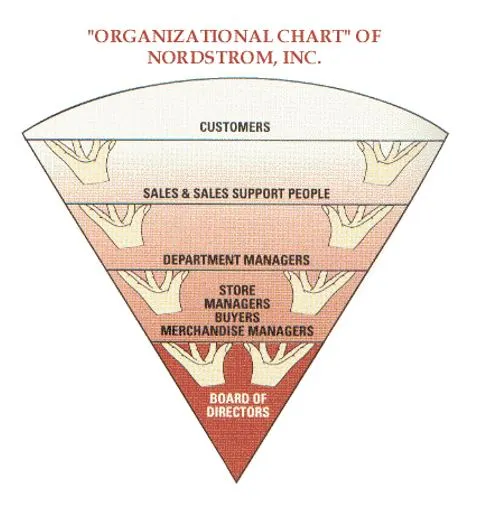As dental providers, we encourage our patients daily to achieve the best health possible by offering solutions to care. Building relationships with your patients involves thinking of them long term and that each encounter builds on that relationship. What are their goals for health five years from now? Where does the practice fit into this picture? Practicing dental servant leadership helps us build toward these goals by embracing and empowering our staff. Changing your mindset from being the boss or commander in chief to being a servant leader to those who work with you and to those you provide care to can be a huge shift in how you live your life and view your role.
Think of your dental team as being with you long term and what you would do to foster building these relationships just as you would your patient relationships. Patients are always comforted to know that there is a committed team helping them.
What is dental servant leadership?
The Servant Leadership Institute defines servant leadership as,
“A set of behaviors and practices that turn the traditional “power leadership” model upside down; instead of the people working to serve the leader, the leader actually exists to serve the people. As a result, the practice is centered on a desire to serve and emphasizes collaboration, trust, empathy, and the ethical use of power. Its primary goal is to enhance individual growth, teamwork and overall employee involvement and satisfaction.”
Servant leadership is an ongoing advance to upgrade life, personal and business relationships, and community welfare and safety. It isn’t about an immediate, complete overhaul but rather can be the smallest of improvements. Over time, these small changes can improve our way of living.
Start with small manageable bites
Many practices have the doctor or management entity as the primary leader in the organization structure. This has been the standard for decades. Even though some practices allow input from employees, the deciding factor on behavior and procedure is instituted by the doctor or owner of the business.
In the traditional leadership role, employees or subordinates look to the boss for approval of all that is done and look to their leaders for inspiration. Why do we stifle creative talents in people with this management structure? It is supposed to eliminate chaos and rogue behaviors by establishing rules that must be followed to achieve order.
The nine values of a dental servant leader
- Values diverse opinions (Not looking for “yes men”)
- Cultivates a culture of trust (Build on the positive)
- Develops other leaders (Lets go of ego for the good of all)
- Helps people with life issues (Engages in active listening)
- Encourages people (Show trust in their abilities)
- Sells instead of tells (Persuades instead of commanding)
- Thinks you, not me (Focus on needs of others)
- Thinks long term (What are the benefits for you, the organization or group in the future)
- Acts with humility (Not for personal gain or to diminish efforts)
An excellent real-world example of a servant leadership organization is Nordstrom, inc. View the chart below and recognize how “leaders” are at the bottom of the organization, lifting, inspiring, and helping those above them succeed. Remember, your main role is to lead others, help support and sacrifice for others, so that they will in turn support and serve our customers.

Another servant leadership organization is the Ritz Carlton. They are world famous for high customer satisfaction and quality. Every team member at Ritz Carlton is taught and believes that “We are ladies and gentlemen serving ladies and gentlemen.” It is imperative that we start serving and sacrificing for our teams to inspire them to do the same for our patients.
Goals for effective dental servant leadership
Before introducing servant leadership, define your values first. After defining your values, think of those that can be improved or enhanced and then live by them.
If you are looking at goals like they are a vast forest, you won’t change a single tree. Broad goals are not great motivators and can shut people down. Instead, when setting goals within your team, break the most crucial goal into smaller goals that can be more easily achieved yet which set the stage to resolve the significant goal over time. Keeping the team motivated by reaching attainable milestones will pull them together to see improvements in themselves.
As servant leaders, we focus on the growth and well-being of people and their communities, and our main purpose is to inspire and equip all those we influence >>>>
For example, say your goal is to connect with your entire established patient base. Each team member will choose a patient of the day to give special attention to his or her needs. The team member will read the patient’s chart and ask questions related to dental or health concerns. Have some new information about how the practice is focused on quality care and safety, for instance. If the long-term goal is to reach every active patient of record each day, the team will see improvement as the numbers drop. These smaller improvements will help you reach your overall target.
Always ask for feedback
Be proactive and search within to learn how you can improve and then ask for feedback from others. Be open to a fair exchange of ideas. A business coach or personal mentor can also be of great help to you and the team when times require us to change and evolve. Feedback can help you take the next step in improvement. Create an environment where giving feedback is safe and welcomed.
Support your team as a dental servant leader
What does this mean? As servant leaders, our motivation should always be understanding first. Answering questions and being available are only the tip of the iceberg. Let’s break down our responsibilities as servant leaders:
- Emphasize the importance of putting the needs of our employees first
- Get to know who you work with, not just the “how”
- Seek to understand first, then be understood
- Empower others to reach their full potential through support
By serving those who work for us, we ultimately serve our company’s mission and contribute to its long-term success. As a servant leader, I commit to nurturing our employees’ strengths, ensuring their well-being, and guiding them to a collective triumph. This, in turn, leads to increased productivity, innovation, and employee satisfaction, setting the stage for sustained success in an ever-evolving business landscape. The platform we have built at eAssist reinforces servant leadership at all levels. I encourage you to speak with a Business Development Specialist to allow us to understand first, then be understood. Together we can help you lead your practice and achieve greatness.










Kate Cacciotti
I believe it is this mindset and structure that makes eAssist such an amazing company to be a part of. The unique way upper management and staff work together is what makes eAssist such a success. Everyone works harder when they feel supported and valued, well said Dr. Anderson.
Lucinda Lignell
What an amazing place to work – in a dental office that embraces this concept!
Judd Flamm
I wish I had learned about Servant Leadership early in my career! I spend years contemplating how to be a good leader. Servant Leadership is a wonderful summary of how to be a leader worth listening to.
Thank you Dr Anderson for sharing this advice!
Scott B Dudley
James, it could not be said better. Well done sir, I tip my cap to you. Happy New Year!